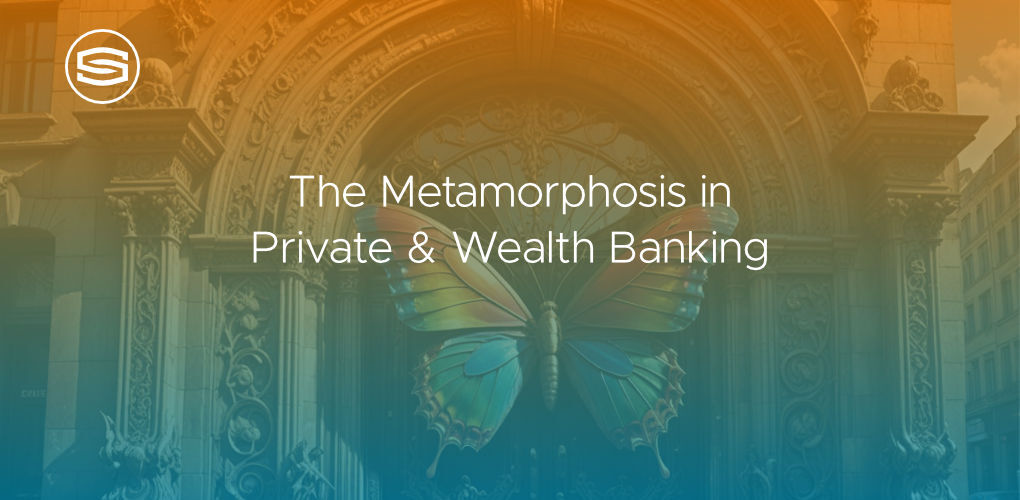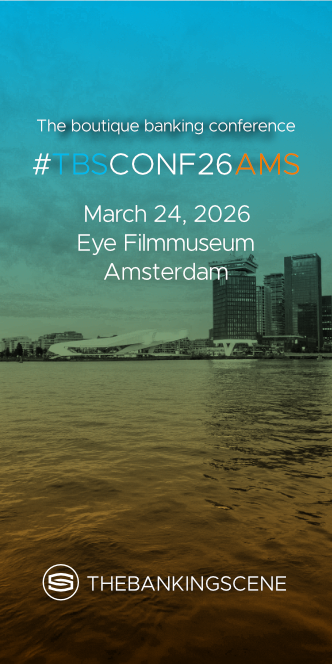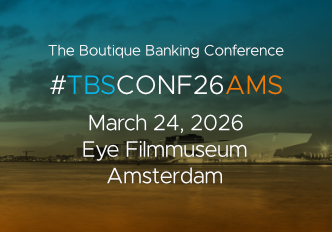
Insights & Opinions
The Metamorphosis in Private and Wealth Banking
Mon, 20 Jan 2025


The journey of private and wealth banking since the pandemic is a remarkable story of transformation. I looked back at the discussions we had at our Luxembourg events since the pandemic to prepare for our event on January 28, The Banking Scene Conference 2025 Luxembourg. Since 2022, I have observed an evolution of how the industry acted reactively to every change in its path during unprecedented times, and transformed into a period of introspection, growth, redefinition and initiative.
The discussions and insights from industry leaders over the years have shaped the path forward, emphasising sustainability, digitalisation, and a renewed client focus.
2022: A Foundation for Change
After a break in 2021, we came together again in 2022. It was revealing and liberating to meet each other again in this vibrant finance hub after the pandemic. Niccolo Polli’s vision of "Banking for Good" set the tone, challenging banks to adopt more ethical practices and align with broader societal goals, not just because of regulation but because it is the right thing to do. Vanessa Müller (a confirmed speaker for January 28) and other sustainability leaders from leading banks in Luxembourg underscored the growing importance of environmental, social, and governance (ESG) principles.
This year marked the maturation of sustainability efforts in banking. While these concepts weren’t new, ESG began to take on greater prominence as banks recognised their potential to drive meaningful change. Industry experts were very vocal about the additional efforts they took in their social responsibility, not just talking about sustainability but also about their social efforts. Banks tried to differentiate themselves from others in defining their social contract with the world.
One pivotal question raised during that time remains highly relevant:
“Retail clients are getting a louder voice, transmitting their values to the industry. To what extent has this come true, not just in retail but also in private and wealth banking?”
The ambition to grow a positive footprint was palpable, but the road ahead was still uncharted.
2023: Defining a New Ethos
The theme of 2023 was "The New Ethos in Banking." This introspective year focused on restoring trust and realigning the role of banks in society. Experts emphasised that banks must transcend regulatory complexity to serve customers better and rebuild trust.
Sustainability and digitalisation emerged as twin forces of transformation. However, these opportunities came with caution. The complexities of implementing ESG regulations, especially for high-net-worth clients, highlighted inefficiencies in existing frameworks. One of our speakers positioned banks as capital regulators rather than profit-makers, stressing the importance of fair access to capital and ethical decision-making in client services.
They called for more nuanced regulation to prevent undue costs from being passed on to retail investors while supporting a sustainable and ethical banking framework.
Key conclusions from 2023 included:
- The necessity of de-complexifying financial services and aligning them with societal needs.
- Embracing technology as a value enabler, especially in ESG reporting and compliance.
- Fostering a cultural shift toward sustainability and long-term thinking driven by visionary leadership.
2024: Changing the Rules of Engagement
By 2024, the industry began to adapt to new paradigms of client engagement, sustainability, and technological innovation.
What I personally remember is the change in sentiment toward regulation. Banks had always been defensive, complaining a bit but accepting increasingly more regulations, as if they still felt sorry for past mistakes. But that changed now. They started to actively advocate for principle-based approaches. Multiple sessions illuminated the burdens of excessive regulation, particularly for smaller institutions, and the need for transparency in customer interactions.
The focus on sustainability deepened. Panels emphasised educating both customers and employees about the complexities of ESG regulations. Instead of viewing these as compliance hurdles, banks started to see them as opportunities to engage clients on issues that matter, as if it transformed the rules of engagement. If people understand why they are being asked about their ESG preferences and know that it is not an interrogation, they will feel heard. And that builds meaningful connections; suddenly regulatory requirements are an opportunity for a deeper conversation on what people want to do with their money.
Another significant theme was the demand for meaningful conversations about wealth. Clients increasingly sought advice on philanthropy, family governance, and the broader impact of their wealth. This shift marked a return to the essence of private banking: fostering relationships grounded in trust and shared values.
The Road Ahead
Looking back, it’s evident that banks are taking control of their destinies, moving beyond mere compliance to embrace sustainability and digitalisation as strategic imperatives. They are increasingly vocal about the need for principle-based regulations, which allow for flexibility and innovation while staying faithful to the law.
Digitalisation, often seen as a burden, is also an enabler of customer-centricity if we are willing to see it. Streamlined processes free up time for deeper, more meaningful client interactions. In private and wealth banking, success now hinges on the ability to balance innovation with the timeless value of human connection.
The metamorphosis of private and wealth banking continues, driven by a shared commitment to redefine the industry’s role in society and its impact on the world. Sustainability, digitalisation, and customer-centricity are no longer aspirations—they are the new ethos of banking.
Questions for the Future
As the industry navigates this transformation, several questions remain unanswered. These will serve as the foundation for our upcoming panel discussion, "The Metamorphosis in Private and Wealth Banking":
- How do we maintain the balance between human connection and digital efficiency in private banking?
- What steps must banks take to overcome the regulatory fatigue associated with ESG frameworks?
- What does success look like in the next decade for private and wealth banking? Is it purely financial, or is it something deeper?
- How can technology be reimagined as a strategic enabler, not just a compliance tool, to drive innovation in client services?
These questions aim to provoke thought and inspire meaningful dialogue among our esteemed panellists and attendees. Join us as we explore the future of private and wealth banking and chart the course for this vital industry.


